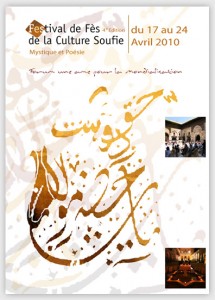SYMPOSIUM: „The Spiritual and the Material“
„The Spiritual and the Material“
> ISLAM & YOGA A STUDY BETWEEN TRADITIONS <
Ibn ‚ArabÄ« (Arabic: اب٠عربÙâ) (July 28, 1165 – November 10, 1240) was an Andalusian Arab Sufi mystic and philosopher. His full name was AbÅ« ‚AbdullÄh Muḥammad ibn ‚AlÄ« ibn Muḥammad ibn al-`ArabÄ« al-HÄá¹imÄ« al-ṬĒī (أب٠عبد اÙÙÙ Ù Ø٠د ب٠عÙ٠ب٠٠Ø٠د ب٠اÙعرب٠اÙØات٠٠اÙطائÙ).Ibn Arabi was born in Murcia, Spain on July 28, 1165 CE (560 in the Islamic calendar), and his family moved to Seville when he was seven years old. In 1200 CE, at the age of thirty-five, he left Iberia for good, intending to make the hajj to Mecca. Some 800 works are attributed to Ibn Arabi, although only some have been authenticated. Recent research suggests that over 100 of his works have survived in manuscript form, although most printed versions have not yet been critically edited and include many errors. Read More: > HERE <
AbÅ« RayḥÄn Muḥammad ibn Aḥmad BÄ«rÅ«nÄ« (Persian: ابÙرÛØا٠٠Ø٠د ب٠اØ٠د بÛرÙÙÛ), often known as Alberuni, Al Beruni or variants, (born 5 September 973 in Kath, Khwarezm (now in Uzbekistan), died 13 December 1048 in Ghazni, today’s Afghanistan) was a Persian Muslim scholar and polymath of the 11th century. He was a scientist and physicist, an anthropologist and comparative sociologist, an astronomer and chemist, a critic of alchemy and astrology, an encyclopedist and historian, a geographer and traveler, a geodesist and geologist, a mathematician, a pharmacist and psychologist, an Islamic philosopher and theologian, and an scholar and teacher. Read More: > HERE <
“ Don’t look at your form, however ugly or beautiful. Look at love and at the aim of your quest. … O you whose lips are parched, keep looking for water. Those parched lips are proof that eventually you will reach the source.“ ~ Rumi
Each year the Society organizes Symposia in the U.K. and the U.S.A. on an aspect of Ibn ‚Arabi’s work.
These international gatherings bring together people from many different fields and traditions, and include scholars, students, and anyone interested in what Ibn ‚Arabi has to say. These events provide a unique opportunity for both speakers and delegates, specialists and non-specialists, to enrich their understanding of the Shaykh’s teachings and their relevance today. The Society also encourages public seminars and lectures and can provide speakers on request.
The Annual Symposium of the Society in the UK will be held at Worcester College, Oxford, on May 1-2, 2010. The title of the Symposium is „The Spiritual and the Material“.
The Muhyiddin Ibn ‚Arabi Society Archive Project – > Archive Report 2009 < : The MIAS archiving project has the aim of creating an online catalogue for the historic manuscripts of Muhyiddin Ibn ‚Arabi and his school.
The Society now has a unique collection of digital and microfilm copies of manuscripts of works by Ibn ‚Arabi, as well as copies of a number of manuscripts of works by his companions and early commentators.
The purpose of the archive is to ensure the safety of historic manuscripts of these works, and to help establish accurate texts for publication.
Since the Society’s archive project got under way there have been important developments in the Turkish library system, with moves to centralise the manuscript collections and the establishment of a digitisation unit.
Speakers and provisional titles of papers:
- Dr Samer Akkach, The Ontology of Love and the Agency of Desire in Ibn ‚ArabÄ«’s Teaching
- Jane Carroll, The Circle and the Square â Seeing the spiritual in the material world
- Jane Clark, „He governs the world through itself“ â Ibn ‚ArabÄ« on spiritual causation
- Venerable Ringu Tulku Rinpoche, Spiritual and Material: Appearance is the Unsurpassed Protection
- Prof. George Pattison, Kierkegaard’s teaching on Absolute Dependence
- Dr Faouzi Skali, „The path of spiritual chivalry (Futuwwa) according to Ibn Arabi: wending oneâs way through action and contemplation“
- Articles about Sufism, Kashmir Sufism, Yoga and Dialogue <
- RIME Philosophy, Bön – Ringu Tulku <
- ISLAMIC PLANT MEDICINE, SUFI <
- www.bodhicharya.org – Ringu Tulku
- www.ibnarabifoundation.com – Ibn Arabi Foundation Pakistan
- www.sufijalalani.com – Hazrat Nasir Mohammed Fakir Soofi Alqadri
- www.sufism.org – The Threefold Society
- www.khamush.com – Mowlana Jalaluddin Rumi
- www.mevlana.net – Mevlana Celaleddin Rumi
- www.kashmirsufism.org – The New Revolution of Love
- www.rumimevlevi.com – Mustafa Kemal ATATÜRK and MEVLANA
- Meet Muhyiddin Ibn Arabi Society, friends, studies at fb <
- Meet Ringu Tulku, Friends, studies at fb <
- Meet Kashmir Sufism Society, friends, studies at fb <
- Meet Global Peace Initiative of Women, friends, fans at fb <
Comments are closed.
